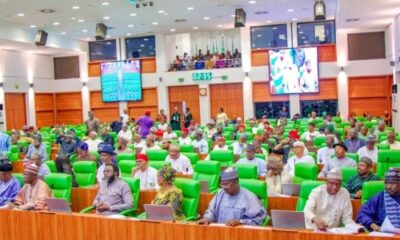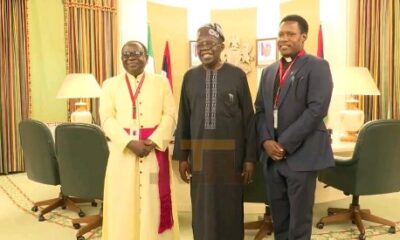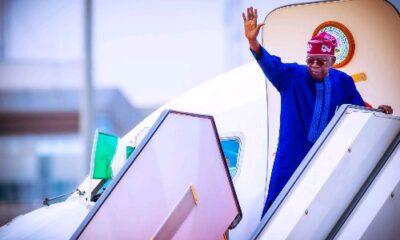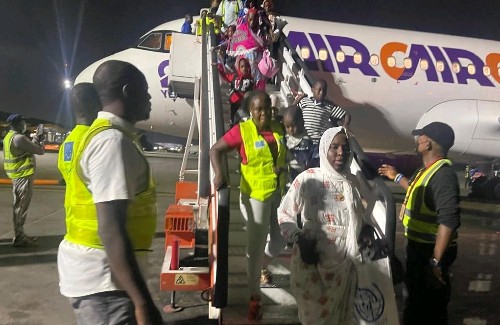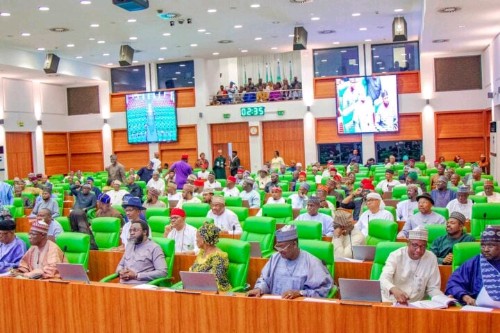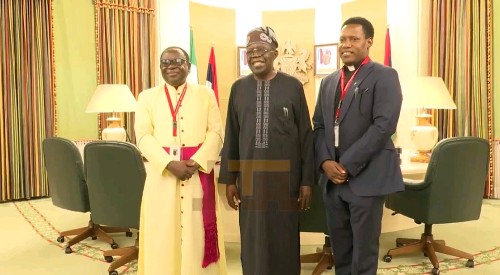The house of representatives, on Wednesday, expressed its concern over the status of the presidential air fleet.
Following a resolution by House Committee on National Security and Intelligence Chairman Satomi Ahmed to conduct a “comprehensive investigation” to determine the airworthiness and technical status of the presidential fleet, the MPs addressed the issue during Wednesday’s plenary session.
Following a malfunction with the presidential plane, President Bola Ahmed Tinubu reportedly took a rented aircraft from the Netherlands to Saudi Arabia.
Vice President Kashim Shettima had to postpone his travel to the US at the beginning of this month because of an aeroplane malfunction. Shettima was supposed to speak for Tinubu at the US-Africa business summit in 2024.
“Vice President Kashim Shettima, who was originally scheduled to represent the President, was unable to make the trip following a technical fault with his aircraft, forcing him to make a detour on the advice of the Presidential Air Fleet,” Stanley Nkwocha, a media aide to Shettima, said in a statement.
The president was, instead, represented by Yusuf Tuggar, minister of foreign affairs, at the event.
While moving the motion, Ahmed said the faulty aircraft in the presidential fleet “pose a clear present and imminent threat to the lives of the president, the vice president, and other very important personalities who use the fleet from time to time”.
The lawmaker said the situation has brought “shame and embarrassment” to the country.
Ahmed said the “ugly situation” should be “arrested” to “forestall any fearful tragedy that might pose an existential threat to the peace and unity of this country”.
In his contribution, Ali Isa, the minority whip, said the president and the vice-president do not need to use a presidential aircraft for their official trips.
Julius Ihonvbere, the majority leader, said due to security implications, the safety of the president must not be left in the hands of commercial airlines.
“Don’t take anything for granted. We must ensure that the officers leading the country are protected and given the dignity they deserve,” Ihonvbere said.
Kingsley Chinda, the minority leader, said there is no harm if the president uses commercial flights.
The lawmaker said the parliament should not spend legislative time discussing whether or not the president of his vice should fly commercial flights.
“I have not seen anything wrong with public office holders using public aircraft. The prime minister of the UK uses British Airways. It is commercial. We should be thinking of how to resuscitate the Nigerian airway,” he said.
“British Airways is not a British Air Force; it is a British private company. If we have planes in the presidential fleet, they should be maintained, and the president and vice president can use them.
“If for any reason we have failed to maintain them, it is not for it to be discussed on the floor of the house.”
Sada Soli from Katsina countered Chinda, saying that the UK prime minister uses a special British Airways plane.
“Today is a very sad day for me to speak on this issue. The life and security of our president and vice president are very important,” Soli said.
“What is going on in the presidential air fleet?” You know how much money this House budgeted for the president’s fleet. What is going on?”
The motion was, however, stepped down.
The house said the security committee has the power to invite Nuru Ribadu, the national security adviser (NSA), to explain why the presidential air fleet is not functioning optimally.
Addressing journalists after plenary, Ahmed said the committee would summon Ribadu and the commandant of the presidential air fleet over the development.
“So, therefore, it is a shame. When Mr President wanted to leave on official duty from Riyadh to the UK, he used a chartered flight. In the 21st century? Come on. Not Nigeria. Let’s be serious, please,” he said.
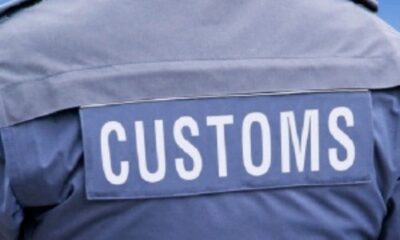
 BIG STORY3 days ago
BIG STORY3 days ago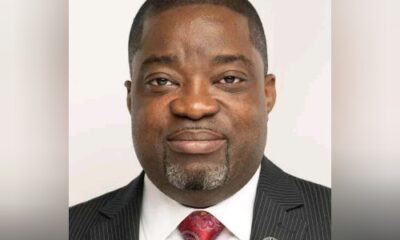
 BIG STORY18 hours ago
BIG STORY18 hours ago
 BIG STORY22 hours ago
BIG STORY22 hours ago
 BIG STORY3 days ago
BIG STORY3 days ago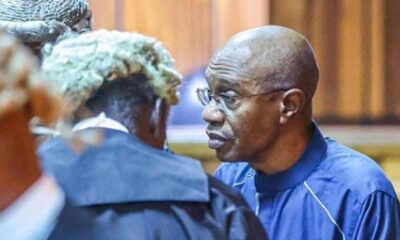
 BIG STORY2 days ago
BIG STORY2 days ago
 BIG STORY1 day ago
BIG STORY1 day ago
 BIG STORY2 days ago
BIG STORY2 days ago
 BIG STORY4 days ago
BIG STORY4 days ago








